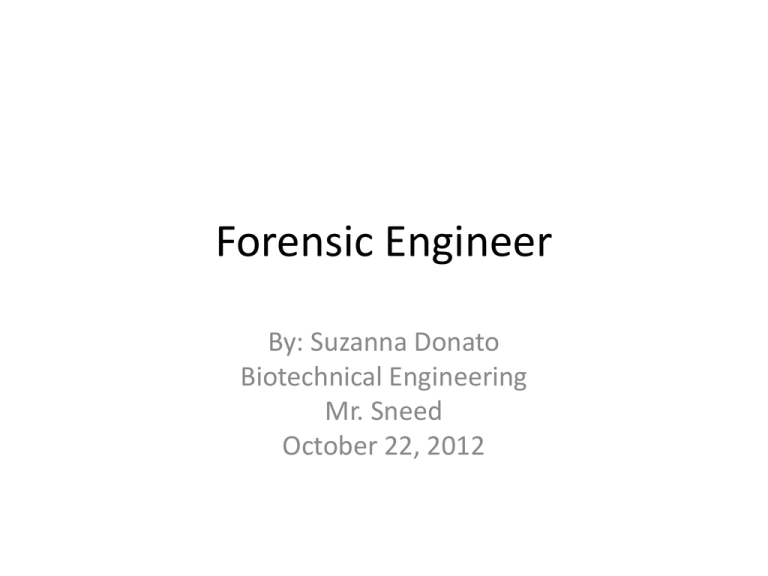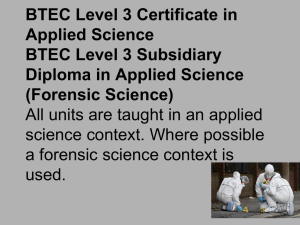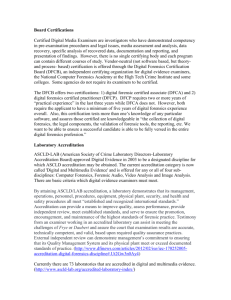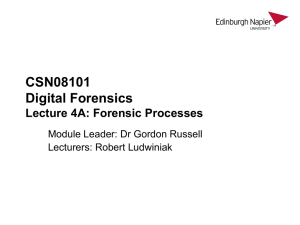Forensic Engineer - Suzanna Donato Biotech
advertisement

Forensic Engineer By: Suzanna Donato Biotechnical Engineering Mr. Sneed October 22, 2012 What is Forensics • Scientific tests or techniques used in the investigation of crimes. What Skills are Required • In order to prepare useful reports and give reliable testimony, it is important to have excellent writing and speaking skills. • Anyone considering a career in forensic engineering should have excellent critical thinking skills and a working knowledge of the legal system and procedures. What Duties are Performed • Forensic Engineers apply scientific methodology to investigate the failures of materials, components, products and structures. Forensic Engineers often are used in product liability cases, a type of civil court case, and, occasionally, criminal cases, to investigate and testify about the source of a product's, design's or object's failure. What Education is Required • To become a Forensic Engineer, you'll need at least a 4-year degree in engineering. • In addition to the required education, you need to become a licensed engineer in the state in which you are employed; require several years of experience and culminate in the successful completion of the Principles and Practice of Engineering exam. What is the Area of Specialization • Forensic Engineers often are used in product liability cases, a type of civil court case, and, occasionally, criminal cases, to investigate and testify about the source of a product's, design's or object's failure. • Forensic Engineers are usually called upon to isolate the specific reason or reasons a product, device or substance failed in order to improve the longevity or performance of the product or to improve its safety profil Conclusion Questions 1. How does an engineer contribute to the world of forensics? - An engineer contributes to the world of forensics by creating useful machines and gadgets that can be used in investigating a crime scene 2. List the forensic technology created by or impacted by engineers? - Forensic Technology created the Integrated Ballistics Identification System (IBIS) in 1991. IBIS technology can find the “needle in the haystack”, suggesting possible matches between pairs of spent bullets and cartridge cases, at speeds well beyond human capacity, in order to help forensic experts give detectives more timely information about crimes, guns, and suspects. 3. How does an engineer work with forensic scientists and forensic technicians? - Engineers work with forensic scientists and technicians by creating useful gadgets or determining why a machine or structure failed and how it pertained to the crime










